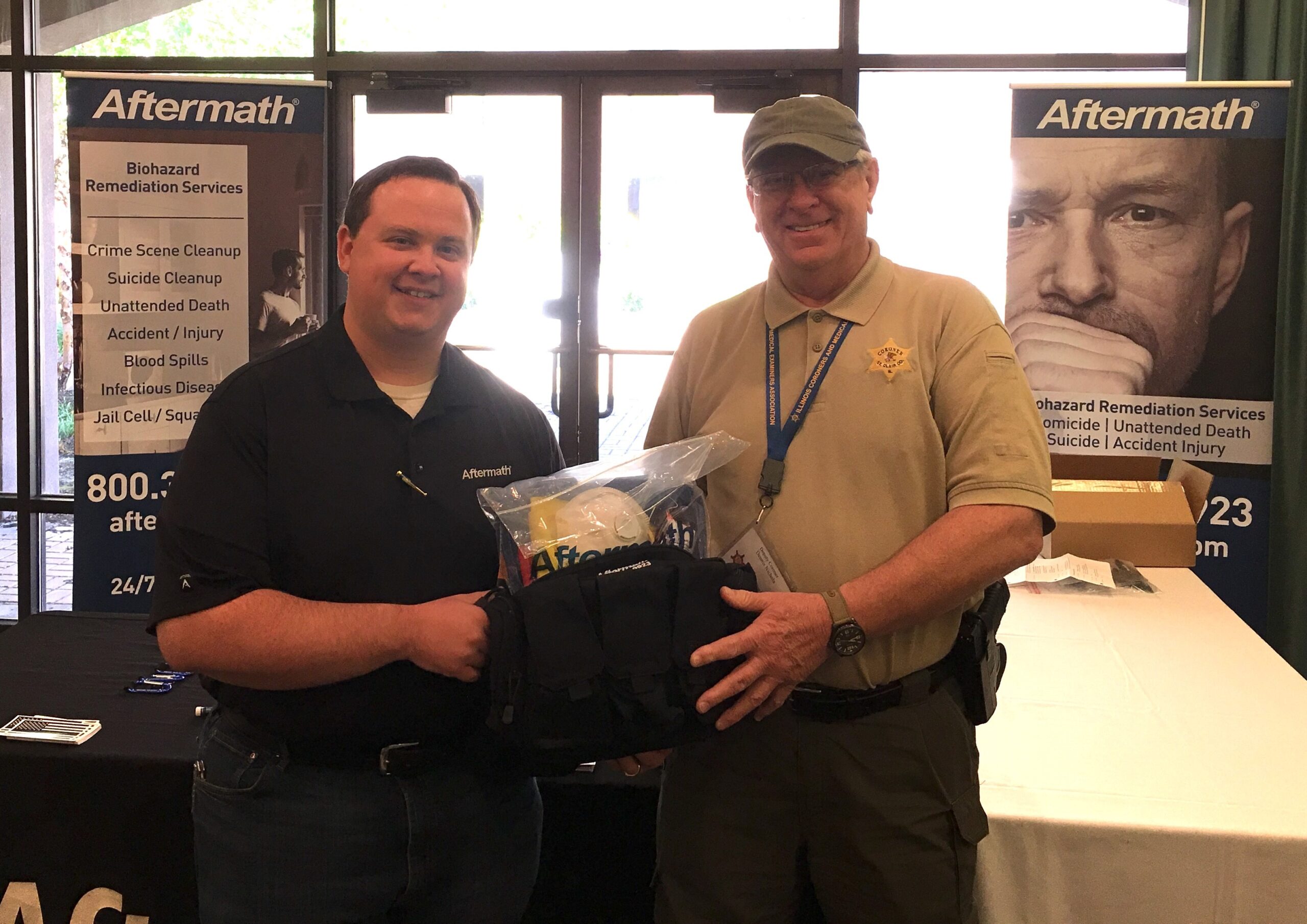Aftermath Attends the 2018 Illinois Coroners and Medical Examiners Training Conference

Last week, members of the Illinois Coroners and Medical Examiners Association (ICMEA) gathered to attend training seminars at the DoubleTree by Hilton in Collinsville-St. Louis, IL. Funeral Home and Marketing Specialist, Ben Dirks, represented the company at the vendor portion of the event. “The coroners of Illinois appreciate AMS and like to continue to get our information,” he explained.
This year’s conference boasted over 200 attendees this year, mostly Coroners and Deputy Coroners. There were also a number of Detectives and Deputy Sheriffs present. Aftermath has attended the training for several years, and it continues to be an excellent opportunity to speak to those in this field. Read on to find out more about ICMEA and the role coroners and medical examiners in law enforcement:
What is ICMEA?
According to the organization’s website, ICMEA is a not for profit corporation that strives to professionalize the role of the coroner by focusing on networking and the development of educational programs to equip Coroners and Medical examiners with the most up-to-date tools and information to perform their work in the community. ICMEA routinely hosts specialized training and events for law enforcement personnel, focusing primarily on maintaining and improving the skill sets necessary to performing important investigative functions.
In Illinois, coroners are typically employed by the county in which they work. To see a list of the counties who participate in ICMEA training, visit the ICMEA mutual aid page.
The Role of Coroners and MEs
Coroners and MEs work side-by-side with law enforcement to ensure cases involving death are handled in a legal and timely manner. A Coroner is an independent judicial official who investigates human deaths, whereas Medical Examiners are usually licensed medical professionals trained in forensic pathology. MEs perform autopsies and inspect organs, tissue and bodily fluids to determine the cause of death in suspicious cases. Alternately, the coroner’s role at a crime scene depends on the jurisdiction. Some coroners serve as administrators, while others manage the handling of the body and navigate working with several aspects of the legal system in order to uphold the law.
Working Together
According to Ben, the coroners who visited the Aftermath booth were generally familiar with the idea of crime scene cleanup and with Aftermath. “They know they can call on Aftermath anytime they have a family in need of our type of services. While some coroners are not able to recommend biohazard cleaning services to families, I had others say they try to keep 2 or 3 companies cards in their vehicle to give to the families. Aftermath makes resource cards for these situations, so we made plans to reach out to these members after the show.”
There were also a few Deputy Coroners who had never heard of Aftermath Services, so Ben explained the importance of proper cleanup and the history of the company. “Informing those deputies of Aftermath and making sure they have our information on hand was crucial for them to help the families in their county.”
In addition to passing out pens, notepads, and resource information, Ben also gave away a tactical bag and PPE kit. Deputy Coroner Dennis Nichols of the St. Clair County Coroners Office was the winner. Congratulations, Deputy Nichols!
About Aftermath
No matter where you are, Aftermath Services is just a phone call away. Our compassionate team of dedicated technicians provide 24/7 cleanup assistance to families nationwide. Call us at 877-697-0348 for immediate assistance, or visit our website to learn more about the Aftermath Way.
 877-872-4339
877-872-4339  Contact Us
Contact Us 






